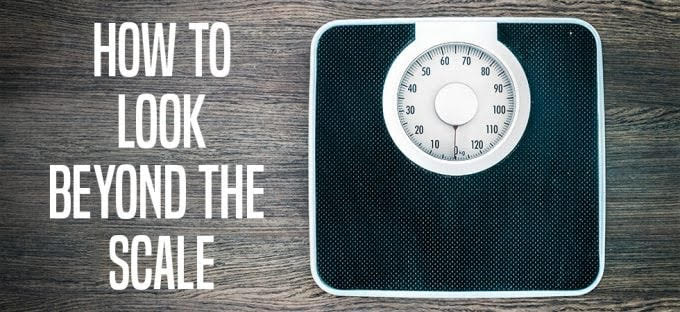|
Embarking on a weight loss journey can be both exciting and challenging. While the scale is often seen as the ultimate measure of progress, it's crucial to remember that there are numerous other metrics and non-scale victories that deserve recognition. In this blog, we will explore the importance of shifting our focus from the scale to other aspects of our health journey, such as body composition, measurements, and non-scale victories. Additionally, we will discuss the significance of maintaining a positive mindset and offer guidance on establishing consistent habits for long-term success.
Beyond the Scale: Body Composition and Measurements: When it comes to weight loss, it's essential to understand that the number on the scale doesn't tell the whole story. Body composition, which refers to the ratio of fat to muscle in your body, is a more accurate indicator of progress. As you engage in regular exercise and adopt a healthy eating plan, you may notice changes in your body composition, even if the scale doesn't budge significantly. Measuring your waist, hips, and other body parts can also provide valuable insights into your progress. Remember, losing inches and gaining muscle are positive signs of a healthier body, regardless of what the scale says. We offer a combination of both the InBody and Styku scans to achieve the optimal measurement of body composition and circumference measurements. It is the most accurate way to capture the trending metrics throughout your health journey. Celebrating Non-Scale Victories: Non-scale victories (NSVs) are achievements that go beyond the numbers on the scale. These victories can include fitting into clothes that were previously too tight, having more energy throughout the day, or being able to participate in physical activities that were once challenging. By focusing on NSVs, you shift your attention to the positive changes happening within your body and mind. Celebrating these victories can boost your motivation and reinforce the idea that weight loss is not just about numbers but about overall well-being. Cultivating a Positive Mindset: Maintaining a positive mindset is crucial during any health journey. It's important to remember that progress takes time and setbacks are a natural part of the process. Here are a few tips to help you cultivate a positive mindset: a) Practice self-compassion: Be kind to yourself and acknowledge that change takes time. Avoid negative self-talk and focus on the progress you have made. b) Set realistic goals: Instead of fixating on a specific number on the scale, set achievable goals that focus on overall health and well-being. This could include incorporating more fruits and vegetables into your diet or committing to regular exercise. c) Surround yourself with support: Seek out a supportive community or enlist the help of a friend, family member or Health Coach who can provide encouragement and accountability. Sharing your journey with others can make the process more enjoyable and less daunting. Consistency in Habits: Consistency is key when it comes to achieving long-term success in your health journey. Instead of relying on short-term diets or extreme exercise regimens, focus on building sustainable habits. Here are a few habits to prioritize: a) Balanced nutrition: Aim to consume a variety of nutrient-dense foods, focusing on whole grains, lean proteins, fruits, and vegetables. Avoid restrictive diets and instead adopt a balanced approach to eating. b) Regular physical activity: Find activities you enjoy and make them a regular part of your routine. Whether it's walking, dancing, or weightlifting, consistency is more important than intensity. c) Mindful eating: Pay attention to your body's hunger and fullness cues. Eat slowly, savor your meals, and listen to your body's signals to avoid overeating. Why Not Weigh Every Day? Weighing yourself every day can be counterproductive for a few reasons. First, your weight can fluctuate throughout the day due to a number of factors, such as food, water, and exercise. This means that you may see a significant change in your weight from one day to the next, even if you're not actually gaining or losing weight. This can be discouraging and make it difficult to stay motivated. Second, weighing yourself every day can focus your attention on the scale. This can lead to unhealthy behaviors, such as restricting your food intake or overexercising. A Recommendation: A better approach is to weigh yourself once a week at the same time of day. This will help you to track your progress accurately and avoid the discouragement that can come from seeing daily fluctuations in your weight. Here are some additional tips for weighing yourself in a healthy way: Weigh yourself first thing in the morning after using the bathroom and before eating or drinking anything. Weigh yourself under the same conditions each time. This means wearing the same type of clothing or being naked each time you weigh yourself. Don't focus on the scale. Remember that the scale is just one metric of your overall health and well-being. Focus on making healthy lifestyle changes and celebrating your non-scale victories. Conclusion: Shifting our focus from the scale to other metrics, such as body composition, measurements, and non-scale victories, allows us to appreciate the holistic changes happening within our bodies. By cultivating a positive mindset and prioritizing consistent habits, we can embark on a health journey that is sustainable, enjoyable, and focused on overall well-being. Remember, the scale is just one small part of the bigger picture. Embrace the journey, celebrate your victories, and let your progress shine beyond the numbers.
0 Comments
Leave a Reply. |
AuthorDamian Solorzano is Health and Wellness Influencer, Respiratory Specialist and Health Coach who is passionate about optimizing personal health. Categories
All
Archives
March 2024
|

 RSS Feed
RSS Feed